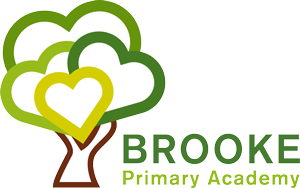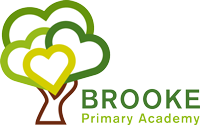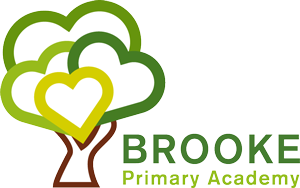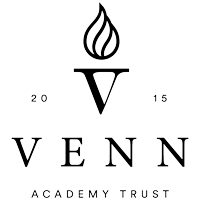
A Venn Academy Trust School
– Together we will…
Venn is a pioneering academy trust, committed to building educational environments where all pupils are inspired to become lifelong learners who achieve the very highest standards possible.
Collaborating with all partners, the Trust works with its unique settings to create world class learning experiences for all.

 Science
Science
Ambition
At Brooke Primary Academy, we encourage children to be inquisitive throughout their time at the school and beyond whilst also developing a love for science. We believe science encompasses the acquisition of knowledge, concepts, skills and positive attitudes.
Throughout the programmes of study, the children will acquire and develop the key knowledge that has been identified within each unit and across each year group, as well as the application of scientific skills. Teachers aim to increase children’s scientific vocabulary and the language of science through the teaching of new knowledge.
We ensure that the Working Scientifically skills are built-on and developed throughout children’s time at the school so that they can apply their knowledge of science when using equipment, conducting experiments, building arguments and explaining concepts confidently and continue to ask questions and be curious about their surroundings.
Children need to be exposed to all six types of scientific enquiry: observation over time, research, pattern seeking, classifying and identifying, comparative/fair testing and problem solving. By exposing children to Science in the wider world, we aim to develop children’s aspirations of potential careers in science through talking about the work of scientists and how they can make a difference to others.
Implementation
Our whole school approach to the teaching and learning of science involves the following;
- Science will be taught in planned and arranged topic blocks across the year, with opportunities for cross curricular links within topics where possible.
- Existing knowledge is checked at the beginning of each topic. This ensures that teaching is informed by the children’s starting points.
- Through our planning, we involve problem solving opportunities that allow children to apply their knowledge and find out answers for themselves. Children are encouraged to ask their own questions and be given opportunities to use their scientific skills and research to discover the answers. Planning involves teachers creating engaging lessons, often involving high-quality resources to aid understanding of conceptual knowledge.
- Working Scientifically skills are embedded into lessons to ensure that skills are systematically developed throughout the children’s school career and new vocabulary and challenging concepts are introduced through direct teaching.
- Teachers demonstrate how to use scientific equipment, and the various Working Scientifically skills in order to embed scientific understanding.
Impact
The successful approach at Brooke Primary Academy results in a fun, engaging, high-quality science education, that provides children with the foundations and knowledge for understanding the world. Our engagement with the local environment ensures that children learn through varied and first-hand experiences of the world around them. Frequent, continuous and progressive learning outside the classroom is embedded throughout the science curriculum. Through various workshops, trips and interactions with experts, children have the understanding that science has changed our lives and that it is vital to the world’s future and are given the exposure to possibilities of their future careers and aspirations.
Further information and resources

Governance and Leadership: Trustees and governors are skilled and committed, regularly visiting the school and maintaining an accurate picture of its operations to ensure continued improvement.

Curriculum and Learning: The curriculum is well-considered, building on previous learning to deepen understanding. While assessment systems need improvement, the school’s overall approach helps in identifying and supporting pupils’ needs.

Extracurricular Activities: There is a wide range of clubs available, such as football, rugby, forest school, and choir, which help develop pupils’ talents and interests.

Positive Behaviour: Changes in how behaviour is managed have helped pupils reflect on their feelings and make better choices. This has resulted in positive behaviour during lessons and playtimes.

Safeguarding: The school has effective safeguarding arrangements, creating an open and positive culture that prioritises pupils’ interests.

School Environment: The academy is described as a warm and welcoming place where pupils feel safe and happy. Respectful and positive relationships are central to the school’s environment.

Support for SEND: The school effectively identifies and supports pupils with special educational needs and/or disabilities (SEND), involving parents in the assessment process and adapting lessons to help these pupils build new knowledge.

Promotion of Values: Pupils learn about diversity and British values through various activities and demonstrate positive attitudes and respect for others. The school also encourages community involvement, such as the choir singing in residential homes and helping at the local food bank.

Overall Effectiveness: The school is rated “Good” in all categories, including quality of education, behaviour and attitudes, personal development, leadership and management, and early years provision.

Anti-Bullying: Pupils respect each other, believe in the school’s values, and feel confident that any issues, including bullying, would be resolved quickly by adults.

Early Years Provision: The early years setting promotes positive relationships and collaboration among children. Adults model effective communication and use assessment well to engage children in their learning.

Reading and Phonics: The school is committed to ensuring all pupils learn to read. Effective training and support for teachers, along with appropriate reading materials and catch-up sessions, help pupils read accurately and confidently.

High Expectations and Progress: The school sets high expectations for all pupils, which are being met. Parents appreciate the support and information provided by the staff and are pleased with the progress their children make.


